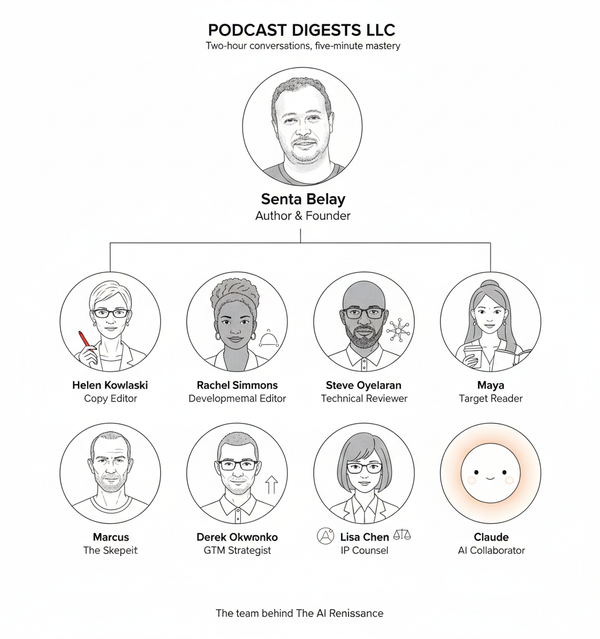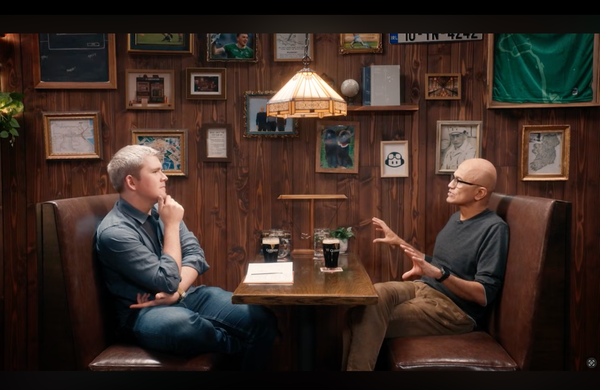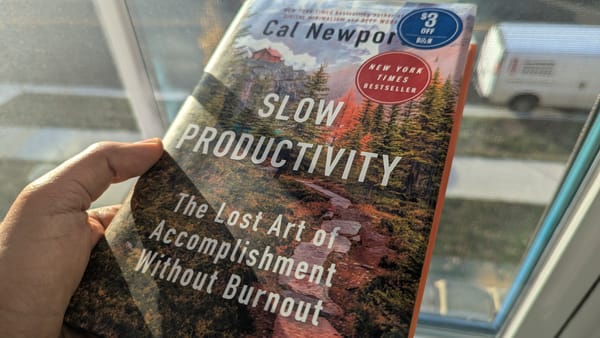Trevor Noah on Trauma, Identity, and Finding Meaning in a Complicated World with Steven Bartlett
You know how some people just make you rethink everything? Well, that's Trevor Noah. Whether it's from his incisive take on politics and society as the former host of The Daily Show or the deeply personal stories shared in his writing, he has this knack for getting straight to the heart of things. In this episode of The Diary Of A CEO, Steven Bartlett, known for his unfiltered conversations exploring the lives and minds of influential people, sits down with Trevor, and they unpack some seriously sharp ideas that span everything from navigating a complex past to finding meaning in the everyday.
The Heart of the Matter
The core of this conversation really boils down to the profound impact of our earliest experiences and relationships on who we become, and the continuous journey of understanding and navigating that impact.
The Story Unfolds: Human Insights
Here's what really struck me from their conversation:
- They dove right into the idea that figuring out who you are isn't about pinpointing one single ingredient, but rather seeing yourself as a complex recipe. Trevor used this wonderful analogy, asking, is it the crunch, the acid, the salt, the fats that make a food what it is? It's often a blend, and for people, those ingredients are things like family, country, and experiences. He shared that, honestly, he genuinely doesn't know the single most important thing that shaped him, and if he did, maybe he could tweak himself – a really human way of looking at personal growth. ⏰ 02:51
- Building on the "ingredients" idea, Trevor offered a fresh perspective, suggesting we're like sponge cakes – the basic mix is similar, but it's the "baker" – the people we meet – who add the icing and shape, giving us that dynamic texture that makes us unique. He emphasized how conscious he is of choosing his friends because they are the ones actively shaping him as he goes through life. It’s a beautiful way to think about the power of the people we surround ourselves with. ⏰ 04:12
- Trevor opened up about his childhood in apartheid South Africa, a time when his very birth to a black mother and white father was illegal. He explained how the apartheid system wasn't just simple racism, but a deeply insidious and complex structure designed to oppress by dividing people based on shades of skin color, not culture, to prevent a united majority. It was powerful hearing him describe it as a "genius system, but just in the wrong direction," highlighting the twisted effort that went into enforcing such terrible laws. ⏰ 06:03 ⏰ 08:39
- He shared a truly moving story about how his mother would pretend to be his caretaker in public, dressing as a domestic worker, so they could be together without the police taking him away. This wasn't just about following rules; it was about survival in a system where families like his were a crime. He mentioned his grandmother also locking him indoors for fear of the police finding him in Soweto, a township designated only for black people. It gives you a visceral sense of the fear and the lengths his mother and grandmother went to protect him. ⏰ 11:38
- They delved into the complex impact of growing up in a home with domestic violence. Trevor spoke candidly about how difficult it is to fully process such experiences, even as an adult, describing it as a "theoretical understanding" rather than a concrete fact. He shared how seeing a parent, usually the mother, in a position of being harmed fundamentally "rocks your fundamental understanding of what the world is." It's a powerful reminder of the deep, lasting scars such environments can leave. ⏰ 16:55
- Trevor talked about how growing up in a volatile household, especially with an alcoholic, developed in him a "spidey sense" – a hypersensitivity to energy and predicting when things are about to go wrong. He explained that this often develops in children who feel their parent isn't aware of impending danger, leading the child to feel responsible for keeping everyone safe. It's a survival mechanism, a constant state of alertness that comes at a cost. ⏰ 24:56
- He shared how, as a child, he would try to disrupt dangerous situations at home by distracting his stepfather, making noise, or saying things to shift his mood. He described thinking of ways to pull attention, like Chris Pratt with the raptors in Jurassic Park – a vivid and poignant image of a child trying to control an uncontrollable environment. This reveals the immense burden placed on children in such homes. ⏰ 29:29
- Trevor recounted the horrific moment he got the call that his mother had been shot point blank in the head by his stepfather. He said his first thought was, "damn, it happened," because, sadly, he had predicted it, though not in that exact way. The most striking part of this story is that he grieved her in that moment, planning for a life without her, only for her to miraculously survive. This experience, he explained, became a strange gift, making him deeply appreciate her and others in his life because he knows how quickly things can change. ⏰ 31:47
- He touched on the painful reality that his stepfather did not go to prison for shooting his mother. Trevor explained that in South Africa, and unfortunately many other countries, crimes committed by men against their wives or partners are often not given the same legal weight as crimes against strangers. He called this a "failing of the justice system" that leaves many women feeling that justice is not served, and it's something that he feels has affected society's ability to treat such crimes with the seriousness they deserve. ⏰ 36:42
- A powerful point was made about the concept of the "self-made billionaire," which Trevor found amusing because he believes nobody achieves massive success entirely alone. He emphasized the countless people behind the scenes – the "sherpas" carrying the weight on the climb up Everest, or the person carrying Usain Bolt – who are crucial to someone's achievement but are rarely mentioned. Recognizing this, he suggests, helps you understand the importance of having those people and why it brings joy. ⏰ 01:39:23
- Trevor shared his reasoning for leaving The Daily Show, explaining that having grown up in South Africa where TV shows naturally come to an end, he has a sense of when it's time to move on, not necessarily because something is bad, but because the story feels complete. The pandemic also played a role, forcing him to work from home and shielding him from the usual panic, allowing him to see clearly that after eight years, it was time for a new chapter. He wanted to spend more time traveling and practicing comedy in other countries – a feeling that became a clear signal. ⏰ 01:41:48
- A powerful takeaway was the idea that the pandemic revealed the things we didn't value enough – not the material things like movies, but human connection. Trevor shared a great story about realizing he loved theme parks not just for the rides, but for the forced downtime spent queuing and talking with friends – proving that the "friction" and shared experience are often where the real value lies. This shifted his perspective on prioritizing relationships over just work. ⏰ 01:47:35
- They discussed how overcoming trauma isn't necessarily about it disappearing, but rather a continuous process of working through it. Trevor introduced the beautiful Japanese art of Kintsugi, where broken pottery is repaired with gold lacquer, becoming more beautiful because of its breaks, not in spite of them. This serves as a powerful metaphor for how our difficult experiences can be acknowledged and integrated, making us, in a sense, more beautiful and unique. ⏰ 02:28:30
- However, Trevor offered a crucial counterpoint to the idea that everything happens for a reason or that trauma makes you stronger, particularly in response to the "eraser test" concept. He believes we shouldn't valorize suffering or make people feel grateful for terrible things that have happened to them. Instead, he prefers to think about what story you would choose to write on the other side of a difficult experience if you could erase the pain, emphasizing agency and the right to not want to keep the "storm." He stated clearly, he would press that button to erase the bad things. ⏰ 02:31:45
- Finally, Trevor emphasized that perseverance is not an individualistic pursuit, and too many people forget to acknowledge the support they received – the "pats on the back and the hugs and the encouragements." He strongly believes that he wouldn't be where he is today, especially having taken on The Daily Show, if he hadn't had people like his friend David with him through the toughest times. Choosing who you go through challenging experiences with is, for him, the most important thing, even more than the job itself. ⏰ 01:36:14
Trevor Noah: Part Storyteller, Part Observer, Part Survivor - and Global Comedic Voice



